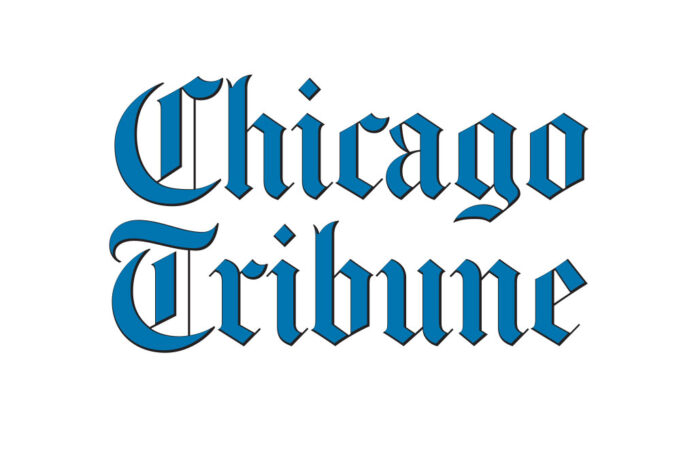At 5:45 a.m. Saturday morning, Dec. 11, a press conference was held in downstate Edwardsville. The deeply sad purpose was to update the public on what happened the previous night when a EF-3 tornado had rolled through that community and partially collapsed a warehouse belonging to Amazon. At least six people died.
Edwardsville Fire Chief James Whiteford was there, so was Edwardsville Police Chief Michael Fillback and other local officials. So, in fact, was Gov. J.B. Pritzker, despite the early hour and the location of Edwardsville, which is far closer to St. Louis than Springfield or Chicago. Pritzker still got himself there to praise emergency workers and to try to comfort some of the afflicted.
You know who was not at that press conference? Anyone from Amazon.
Worse yet, the absence of Amazon in front of the cameras that morning allowed confusion to grow over precisely how many people had died. The authorities said they didn’t know how many people were gone because Amazon didn’t know how many people had been in the warehouse during the incident.
That uncertainty, the officials said, was compounded by at least two other factors: a shift change was in progress and Amazon’s operation is only partially staffed by Amazon workers, the remainder being either employees of other entities or independent contractors.
Only hours later did Amazon finally put out a statement from a spokesman that was so anodyne as to be insulting to those victims: “We’re deeply saddened by the news that members of our Amazon family passed away as a result of the storm in Edwardsville. Our thoughts and prayers are with the victims, their loved ones, and everyone impacted by the storm. We also want to thank all the first responders for their ongoing efforts on scene. We’re continuing to provide support to our employees and partners in the area.”
Thoughts and prayers? Please. Anything but that cliche. And when families and “partners” are in pain, they show up for each other. And who is the “we,” exactly?
It got worse. Early Saturday, Dec. 11, Jeff Bezos, still the executive chairman and public face of Amazon despite handing over the CEO reins to Andy Jassy last summer, was tweeting about the pleasures of his fun space venture, seemingly oblivious to what had happened the night before to regular folks trying to survive on terra firma. Only after he received intense pressure for the omission, did Bezos put out an expression of sympathy.
He, Jassy, or a top lieutenant, should have been at that microphone at 5:45 a.m., or at least on Zoom, answering real questions and attending to the pain of the good people of Edwardsville. Amazon was not, of course, responsible for the tornado, but people still died because they were in that warehouse, working for Amazon.
The absence did not go unnoticed, nor, later in the day, did the disparity between Amazon being fully able to get a package to your door in minutes and yet not being entirely sure how many people had been killed in its own warehouse.
“The company with one of the most sophisticated logistics systems in the world can’t say how many employees are still unaccounted for nearly 24 hours after the tornado hit its warehouse?” tweeted the Springfield NPR-affiliate reporter Hannah Meisel.
Those of us who work on this page have been around long enough to remember CEOs and company presidents who understood that in a time of crisis, Chief Executive Officer must stand for Chief Emergency Officer. We recall watching airline CEOs at crash sites, even as the rubble was still smoldering; we remember jackets replaced by reflective clothing following previous heartland tornadoes; weekends with families abandoned in service of the message that any employer who does not tend to workers, or their grieving family members, in a time of crisis is not a company for which anyone should either want to work or conduct business.
And we’re well aware of what they used to teach in business school: Act immediately, show empathy, do the right thing fast. And take care of your people.
But tech companies, as a group, have not exactly kept up that tradition as they have risen in wealth and power. They hide behind the new ease of anonymity, avoiding the costs of human contact.
This abnegation of traditional channels of expressing corporate responsibility is not in the company’s interests, as it further fosters the image of these entities as giant, impersonal traders in human work-lives, exploiting the gig economy for their own purposes, hiding their humanity behind their technology and refusing to play the role that American business has always played. There are exceptions, of course, and Amazon faced real difficulties here, but the perception certainly did not improve this past weekend. Big bosses hid.
This page often has taken government officials to task for falling down on the job. In this case, the government was there doing the best it could, all through the night Friday and on Saturday morning. It was a business that fell down on surely its most important job: to immediately show that it cared for human life right here on earth.
The Chicago Tribune


